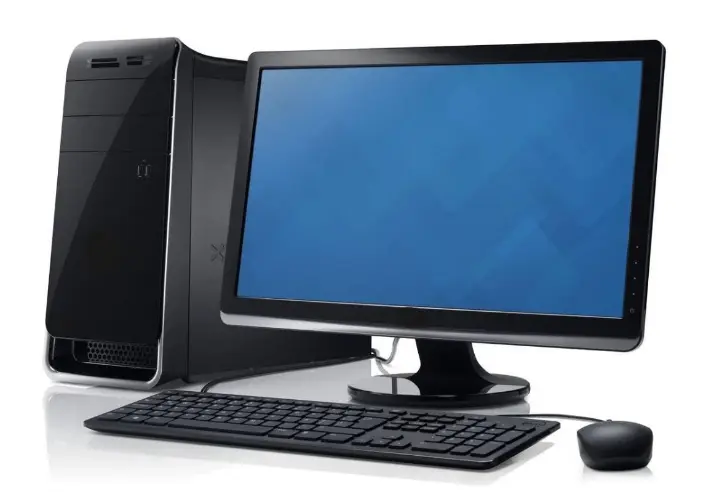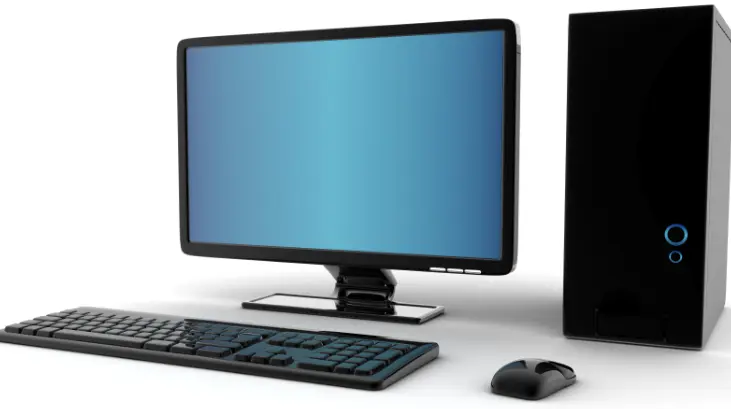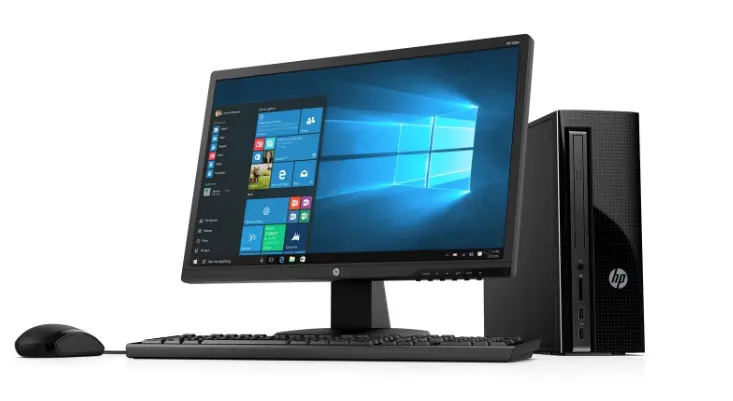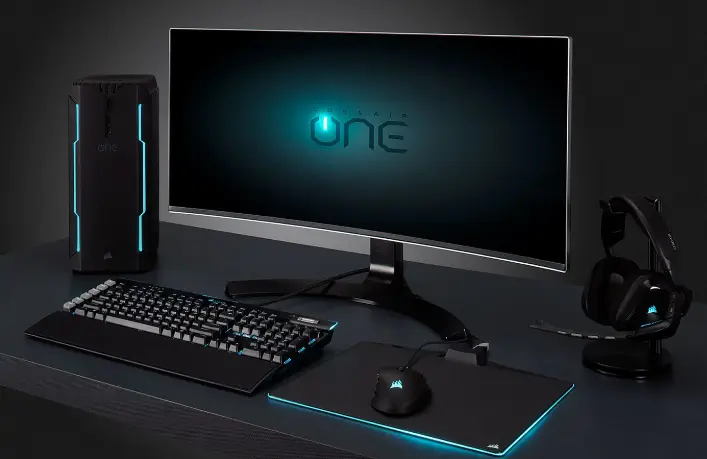In this article, we will delve into the distinctions between All in one pcs and Desktop Computers to help you choose the one that best suits your requirements.
In today’s digital age, choosing the right computer for your needs can be a daunting task. Two popular options that often come up in the debate are the “All in one pc” and the traditional “Desktop Computer.” Both have their unique features and advantages, making it essential to understand the differences between them to make an informed decision.
the Differences Between All in one pcs and Desktop Computers

-
Form Factor
The most apparent difference between all in one pc and Desktop Computers is their form factor. An All in one pc, as the name suggests, integrates all of its components, including the display, CPU, and other hardware, into a single sleek and space-saving unit. On the other hand, a Desktop Computer typically consists of separate components such as a tower or chassis, monitor, keyboard, and mouse, which are often larger and take up more space.
-
Space Efficiency
All in one pcs are known for their space-saving design, making them ideal for users with limited desk space or those who prefer a clutter-free workspace. Desktop Computers, with their separate components, tend to occupy more space and may require a dedicated area.
-
Upgradability
One of the key advantages of Desktop Computers is their upgradability. Desktops allow users to easily swap out components like the CPU, graphics card, and storage devices, which can be upgraded to keep pace with evolving technology.
All in one pcs, in contrast, are often more challenging to upgrade due to their compact design and integrated components. This means that Desktop Computers offer greater flexibility for users who want to customize and enhance their system’s performance over time.
-
Performance
Desktop Computers generally offer superior performance compared to All in one pcs. This is because Desktops can accommodate larger and more powerful components, including high-end processors, dedicated graphics cards, and extensive cooling solutions. If you require a computer for resource-intensive tasks such as gaming, video editing, or 3D rendering, a Desktop Computer is likely the better choice.
-
Portability
All in one pcs are designed with portability in mind. They are lightweight and easy to move around,
making them suitable for users who need a computer that can be easily transported from one room to another or even to different locations. Desktop Computers, due to their larger and more cumbersome components, are less portable and typically stay in one place.
-
Aesthetics

All in one pcs often boast a sleek and modern design, with a single unit that looks elegant and minimalist.
This makes them an attractive option for users who prioritize aesthetics in their workspace. Desktop Computers,
while offering more customization options, may not always have the same level of design finesse as All in one pcs.
-
Price
Desktop Computers tend to be more budget-friendly than All in one pcs with comparable specifications.
|The integrated design and compact form factor of All in one pcs often come at a premium cost.
If budget constraints are a primary concern, a Desktop Computer may offer better value for your money.
In the choice between an All in one pc and a Desktop Computer, your decision should depend on your specific needs and preferences. All in one pcs are excellent for those who value space efficiency, aesthetics, and portability, while Desktop Computers offer superior upgradability and performance for users with demanding computing tasks. Consider your priorities, budget, and intended use carefully to make the right choice between these two distinct computer types.
-
Display Quality
When it comes to display quality, both All in one pcs and Desktop Computers can offer high-resolution screens
. However, All in one pcs often focus on delivering sharp, vibrant displays since the monitor is an integral part of the system. These machines are ideal for tasks that demand excellent visual clarity, such as graphic design, multimedia content creation, and entertainment.
Desktop Computers, on the other hand, provide flexibility in choosing your monitor separately.
While this means you can select a high-quality display that meets your specific requirements,
it also means you have to invest separately in a monitor. If you have specialized display needs
or prefer a particular brand or model, Desktop Computers give you the freedom to make that choice.
-
Connectivity Options
All in one pcs and Desktop Computers both come with a range of connectivity options, including USB ports, audio jacks, HDMI, and more. However, Desktop Computers often have more extensive connectivity options due to the larger chassis, allowing for a greater number of ports and expansion slots. This can be advantageous if you need to connect multiple peripherals, such as external hard drives, printers, and additional monitors.
-
Maintenance and Repairs
Maintaining and repairing All in one pcs can be more challenging than Desktop Computers.
If a component within an All in one pc malfunctions, accessing and replacing it may require specialized tools
and expertise. Desktop Computers, on the other hand, are generally easier to open, diagnose, and repair or upgrade by users or technicians.
Read more: Exploring the Differences Between Thunderbolt 3 and Thunderbolt 4
-
Operating System and Software

Both All in one pcs and Desktop Computers can run a wide range of operating systems, including Windows, macOS,
and Linux. Your choice of operating system may influence your decision, but it’s worth noting that some All in one pcs come with the operating system pre-installed, which can be convenient for users who want a hassle-free setup.
Desktop Computers often require you to install the operating system separately. the choice between an All in one pc and a Desktop Computer ultimately depends on your specific needs, preferences, and budget.
All in one pcs are best suited for users seeking a space-saving, stylish, and integrated solution, while Desktop Computers are the go-to option for those who prioritize upgradability, performance, and customization. Assess your requirements carefully, and you’ll be better equipped to make the right decision to meet your computing needs.

